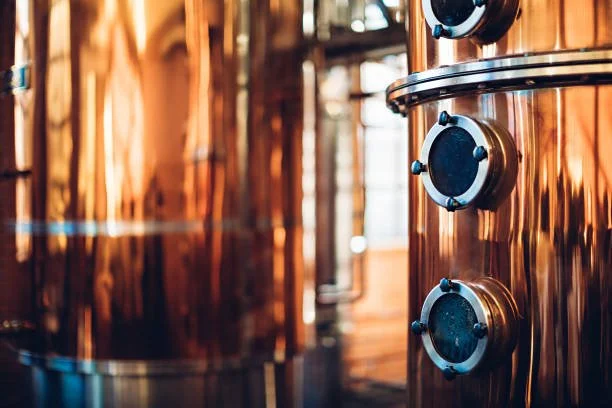Starting a Distillery in Texas: Legal Considerations and Steps to Take.
Embarking on the journey of starting a distillery in Texas is an exciting venture that requires careful planning and a thorough understanding of the legal landscape. Texas, known for its vibrant craft spirits scene, offers a promising market for new distilleries. With that said, navigating the legal requirements and regulatory processes can be complex. This Martin Frost and Hill liquor attorneys blog post will guide you through the essential legal considerations and steps to take when starting your distillery in the State of Texas.
Legal Considerations
Federal Permits and Regulations
Alcohol and Tobacco Tax and Trade Bureau (TTB) Permit: Before you can produce spirits, you must obtain a Federal Distilled Spirits Plant (DSP) permit from the TTB. This involves submitting detailed plans of your distillery, background checks, and ensuring compliance with federal regulations.
Bond Requirements: Depending on your production volume, you may need to secure a bond to cover potential excise taxes. The TTB will provide guidelines on the bond amount required.
State Licenses and Regulations
Texas Alcoholic Beverage Commission (TABC) License: After obtaining your federal permit, you must apply for a state permit from the TABC. This involves additional paperwork, inspections, and adherence to state-specific liquor laws.
Zoning and Local Permits: Ensure your chosen location complies with local zoning laws. You may need special use permits or variances depending on the area’s zoning restrictions.
Environmental Compliance
Waste Management: Distilleries produce waste materials that must be disposed of according to environmental regulations. Ensure you have a plan for managing waste, including spent grains and wastewater.
Air Quality Permits: Depending on your production methods, you may need to secure air quality permits to control emissions from your distillery.
Labeling and Advertising
TTB Label Approval: Before you can sell your spirits, you must obtain a Certificate of Label Approval (COLA) from the TTB. This ensures your labels comply with federal standards, including ingredient listings and health warnings.
Advertising Compliance: Any advertising for your distillery must adhere to both federal and state liquor laws to avoid misleading consumers or making prohibited claims.
Steps to Take
Business Planning
Develop a Business Plan: Outline your business model, target market, marketing strategy, and financial projections. A solid business plan is essential for securing financing and guiding your operations.
Choose a Legal Structure: Decide whether you will operate as a sole proprietorship, partnership, LLC, or corporation. Consult with a liquor attorney to determine the best structure for your business.
Location and Equipment
Select a Suitable Location: Your distillery’s location must comply with zoning laws and be accessible for distribution. Consider factors such as proximity to suppliers and potential customers.
Purchase and Install Equipment: Acquire the necessary distilling equipment, including stills, fermenters, storage tanks, and bottling lines. Ensure all equipment meets safety and regulatory standards.
Secure Funding
Financing Options: Explore financing options, including loans, grants, and investors. Your business plan will be crucial in convincing lenders and investors of your distillery’s potential.
Budgeting: Develop a comprehensive budget that includes start-up costs, operational expenses, and contingency funds.
Compliance and Permits
Obtain Necessary Permits: With the help of Martin Frost and Hill liquor attorneys, apply for federal, state, and local permits as outlined in the legal considerations. Ensure all paperwork is accurately completed and submitted in a timely manner.
Compliance Monitoring: Establish a system for ongoing compliance with all relevant regulations. This includes regular reporting to the TTB and TABC, as well as maintaining accurate records of production and sales.
Production and Quality Control
Recipe Development: Experiment with different recipes and techniques to develop unique and high-quality spirits. Consider sourcing local ingredients to create distinct Texas flavors.
Quality Assurance: Implement quality control measures to ensure consistency and safety in your products. Regular testing and adherence to industry standards are crucial.
Marketing and Sales
Brand Development: Create a strong brand identity that resonates with your target market. Develop compelling packaging and branding materials with the help of companies like Goat Sites or GSD&M.
Distribution Channels: Establish relationships with distributors, retailers, and bars. Consider direct-to-consumer sales through a tasting room or online platforms where permissible.
Community Engagement
Local Partnerships: Engage with the local community and form partnerships with local businesses. This can enhance your brand’s visibility and support from the community.
Events and Tastings: Host events, tastings, and tours to attract customers and build a loyal following. These activities can also provide valuable feedback on your products.
Conclusion
Starting a distillery in Texas involves navigating a complex web of federal, state, and local regulations. By thoroughly understanding the legal considerations and following a structured approach, you can set your distillery on a path to success. Martin Frost and Hill can help with that. From securing permits to developing your brand, each step is crucial in building a reputable and compliant distillery. Embrace the journey with careful planning and a commitment to quality, and you’ll be well on your way to making your mark in the Texas spirits industry.
A liquor attorney can be an invaluable resource throughout this process, helping you navigate the intricacies of TABC regulations and ensuring compliance with all applicable liquor laws. Consulting with a top liquor attorney such as Martin Frost and Hill Liquor Attorneys will provide you with the expertise and guidance needed to successfully launch and operate your distillery. Remember, adherence to compliance standards is not just a legal obligation but a foundation for your distillery’s long-term success.

